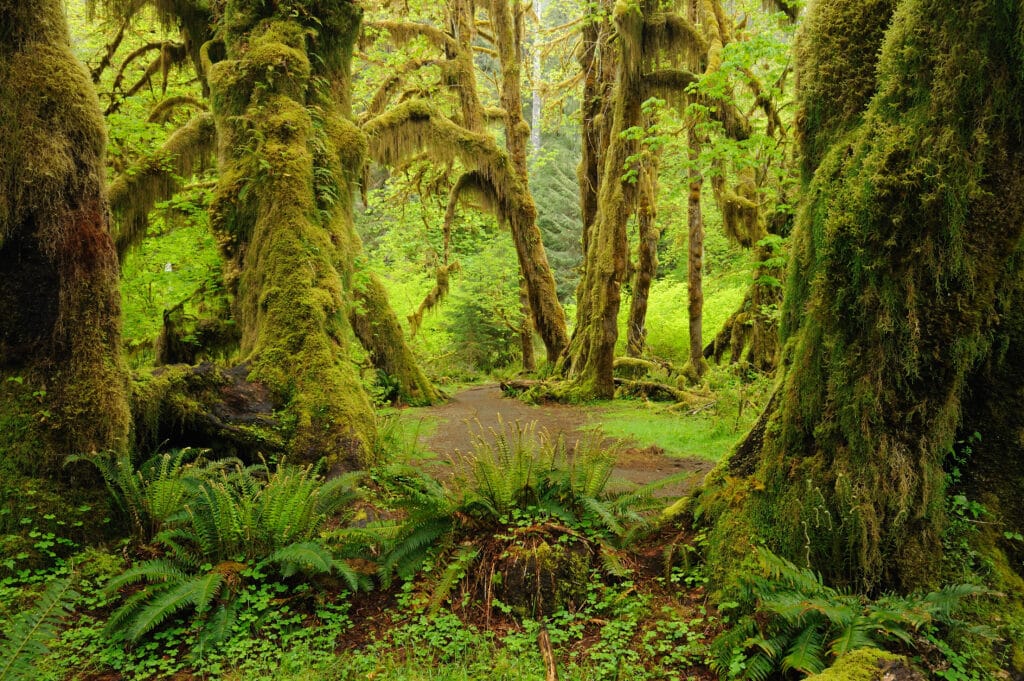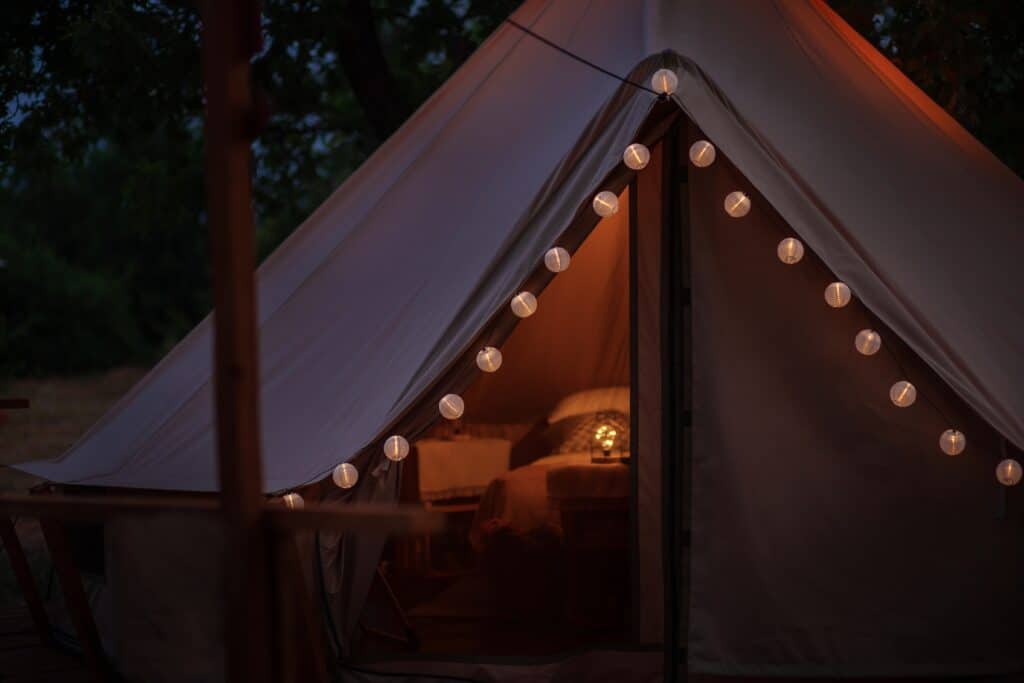A psychedelic retreat is just that – a retreat that people attend so they can experiment with psychedelics. But obviously there’s a lot more to it than that. What takes place at these retreats? What are the goals of the attendees and practitioners? How much do they cost? And last but certainly not least, where can you find one?
Until a few years ago, a person interesting in partaking would have to plan a voyage to different country, typically somewhere in South America, the Carribean, or the Netherlands; but now that laws are changing in favor of hallucinogenic drug research and accessibility, we’re seeing a growing number of psychedelic retreats taking place right here in the US.
What is a psychedelic retreat?
Psychedelic retreats have been growing in popularity as a way for people to escape everyday stressors by using hallucinogens (under supervision in a structured setting) to improve their mental health and overcome blockages that may be hindering them in life. While psilocybin retreats seem to be the most common, you can find some that offer ayahuasca/DMT, ibogaine, and MDMA.
Some retreats encourage attendees to microdose, or take extra small doses of hallucinogenic drugs, and participate in therapeutic discussions and activities over the course of their stay; others will employ guides and “tripsitters” to watch over attendees while they take larger, heroic-style doses. What you get and how it all works is largely dependent on the retreat itself, as well as what is legal in the region that you’re in.
One thing that seems pretty universal about all these retreats is that they are quite expensive, to the point that they’re unaffordable for your average, middle-class individual. Most retreats average anywhere between $2000 and $7000, and often, this is not an all-inclusive price as you will typically have to pay separately for travel, food, and other accommodations.
Until recently, it was common for people to travel out of the country for these retreats to places like Brazil, Mexico, Jamaica, and the Netherlands. In recent years, as different states begin to adopt more progressive laws for psychedelic use, we’re beginning to see a blossoming retreat business here on our own soil. Top US destinations for psychedelic retreats include Colorado, Washington, Oregon, and select locations in California.
Finding a retreat in the US

Up until the 1970s when hallucinogens where reclassified as Schedule 1 narcotics, the United States had been relatively open to the idea of psychedelic-assisted therapy. Throughout the 1940s and 50s, a lot of research was being conducted on the benefits and safety profiles of these drugs, and as it turns out, they were found to be both – wildly beneficial and extremely safe.
The studies and therapy sessions gained little attention for decades, but when the counterculture movement of the 1970s came to fruition, so too came the cultural, political, and legal backlash against drug use. Cannabis, along with psychedelic substances like psilocybin, LSD, and MDMA were all classified as Schedule 1 drugs, meaning they are “likely to be abused and have to therapeutic value”, and effectively banned from use in scientific research.
In recent years, however, there has been a resurgence of interest in hallucinogens which has prompted a rise in research, as well as an entire industry dedicated to improving access to these drugs. Numerous institutions and foundations are exploring the therapeutic potential of these drugs including Multidisciplinary Association for Psychedelic Studies (MAPS), the Beckley Foundation, and the Center for Psychedelic and Consciousness Research at Johns Hopkins University
As far as the market goes, these drugs are still illegal in most of the US and at the federal level, so there is no way for curious possible psychonauts to go out and buy these substances for some self-experimentation. What we are seeing is a growing number of wellness centers and retreats that are licensed to offer some of these compounds and do so in a controlled setting.
Historically, these retreats and centers have been situated in other countries where psychedelic regulations are more lax. But now, with a push for hallucinogenic drug reform here in the US, you might be able to find a trippy retreat right in your own backyard.
For example, I met some people at Psychedelic Science in Denver last month who operated a psychedelic retreat/wellness center out of Washington called the Meehl Foundation. They offer numerous different substances such as psilocybin, kambo, cacao, ninos santos, hape, and sananga; as well as a few different sessions including individual and group sessions, a shamanic sisterhood, ancestral and spirit medicine, and more. But beyond that, what was probably my favorite offering of theirs is that they have a “come to you” option, where they travel to your state for a private family ceremony.

And they are just one of many in Washington, Oregon, Michigan, Colorado, California, and a growing number of states and cities that have passed more progressive psychedelic laws. As long as the general public is barred from purchasing these drugs on their own accord, the demand for these retreats will continue to grow.
Psychedelics and mental health
Over the years, psychedelics have proven themselves to be one of the most successful treatment options for many different mental health disorders. An overwhelming 82% percent of Americans are in favor of accelerating research on this front, but federal regulations have really been a stick in the wheel of progress here. Given the introspective and sentient nature of psychedelics, it makes sense that using them therapeutically can help a person be more honest, open, and transparent.
Although discussion of using psychedelics therapeutically is pretty fresh for most of us, many cultures have been utilizing entheogens medicinally and in religious rituals for thousands of years. Even scientists in United States and Europe were conducting research on psychedelic compounds for the treatment of mental illnesses, and it all really began to gain traction throughout the 1940s and 1950s.
In 1943, Swiss-chemist Albert Hofmann first synthesized lysergic acid diethylamide and by the early 1950s, psychiatrist Humphry Osmond had already pioneered a treatment regimen using LSD to cure alcoholism and other mental disorders; with relative success might I add. Osmond is the one who coined the term ‘psychedelic’, meaning ‘mind manifesting’. He also oversaw author Aldous Huxley’s infamous, therapeutic mescaline trip in 1953.
Numerous psychedelic studies were in the works during that time, but all that research was derailed for social and political reasons when entheogenic compounds were banned at the start of the 1970s. Fast forward a few decades, and we are now beginning to a see a growing acceptance of these compounds, especially the naturally-derived ones, and thus, an uptick in research. One of the main areas of interest is how psychedelics can help with mental health disorders such as depression, PTSD, and addiction.
“The evidence suggests mystical experiences help people gain a new perspective on their issues,” said Matthew Johnson, the Susan Hill Ward professor in psychedelics and consciousness at the Johns Hopkins School of Medicine. “We think the long-term biological changes will be similar to those with successful psychotherapy. Essentially, the person has learned something about this problematic behavior in their life and changed their life as a result.”
Final thoughts
Although the price point puts it out of reach for a lot of people, it still is good know that if you want to and can afford it, you can find a psychedelic retreat right here in the United States. And as they continue to grow in demand and the competition for these retreats and wellness centers gets a little stiffer, we’re likely to see the prices drop, at least a little bit, in the near future.
Thanks for coming our way! Welcome to Cannadelics.com; where it’s our goal to report on the most interesting stories in cannabis, hallucinogens, and the general drug world. Join us frequently to stay in-the-loop with top stories; and check out the Cannadelics Weekly Newsletter, so you’re never late to get the news.

